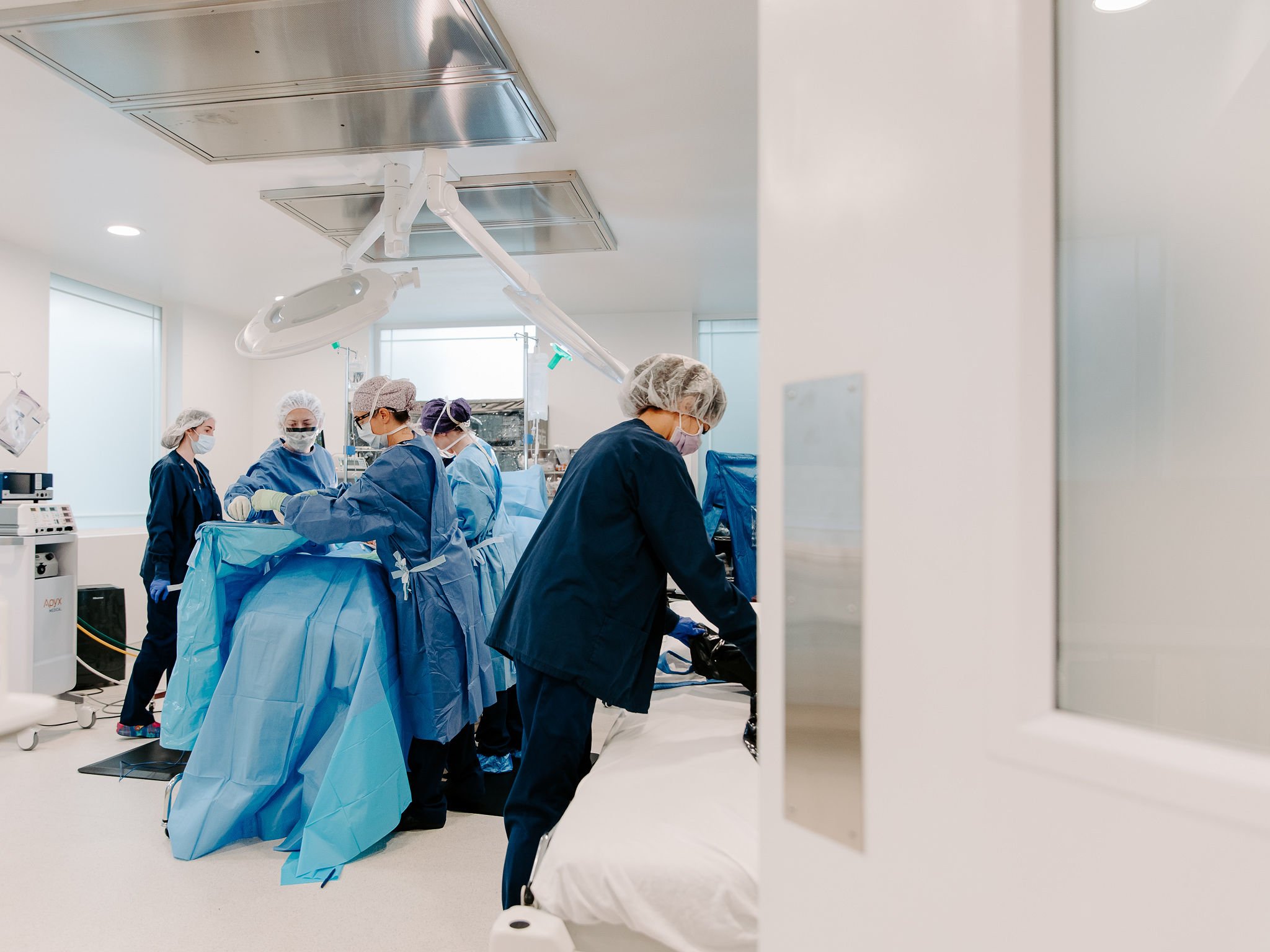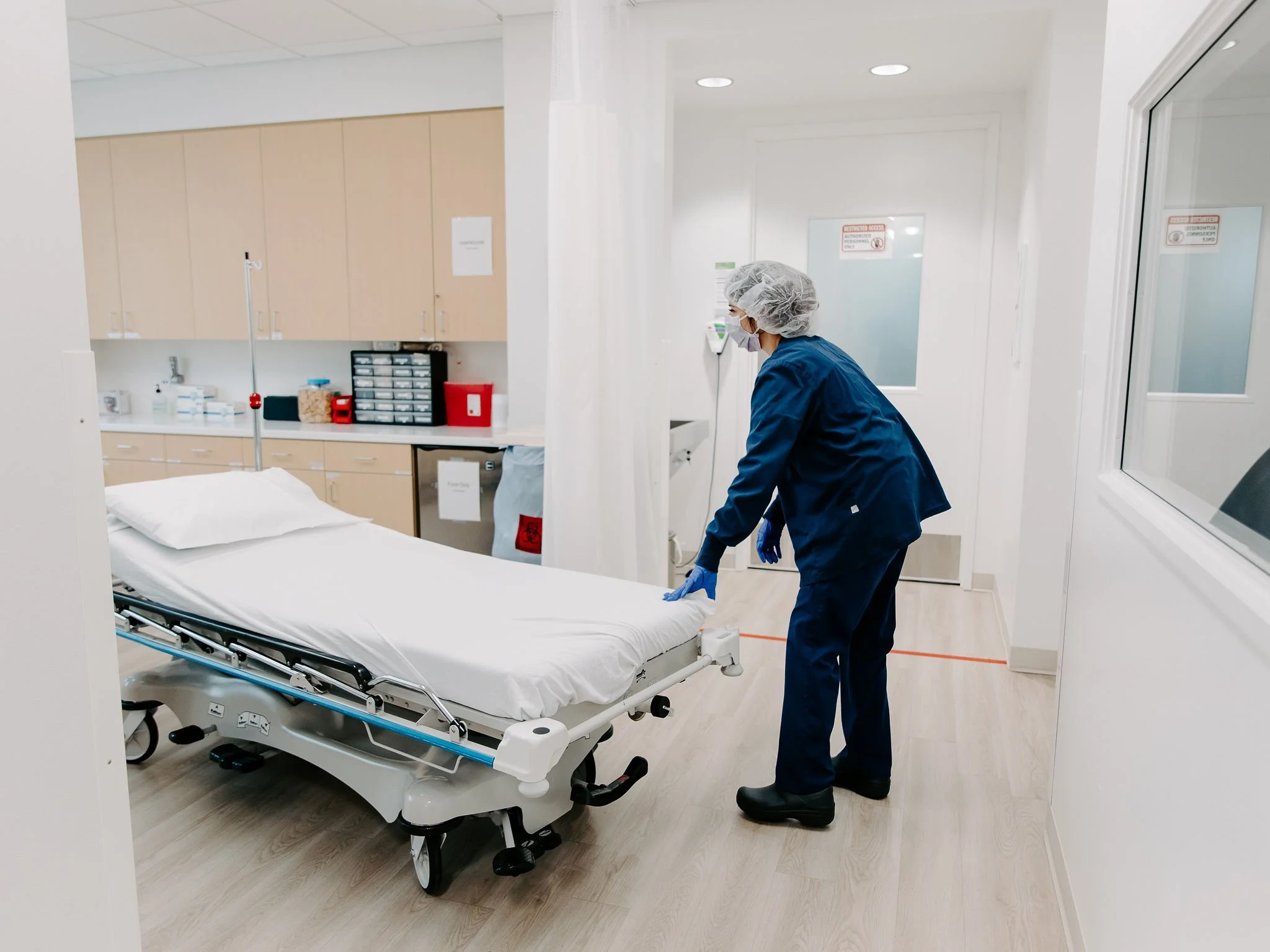Pre & Post Operative Care Instructions
PREPARING FOR YOUR SURGERY
-
DO NOT SMOKE for at least 6 weeks prior to surgery and 6 weeks after surgery. Smoking increases risks of serious complications during and after surgery. This includes marijuana that is inhaled.
No aspirin or blood thinners (Coumadin, Plavix, Asa etc.) for 10 days prior to and 1 week after surgery unless directed otherwise.
Do not take anti-inflammatory medicines (such as ibuprofen, Aleve, Motrin, Excedrin) for 1 week prior to surgery AND 1 week after surgery.
Stop taking herbal supplements 2 weeks prior to surgery.
Call your caregiver’s office the morning prior to surgery if you develop an illness or problem which may prevent you from safely having your procedure. (fever, body aches, chills, severe productive cough).
-
DO NOT EAT OR DRINK AFTER MIDNIGHT THE DAY BEFORE SURGERY. This includes gum, mints, candy, etc.
Take your usual medicine the morning of surgery with a sip of water unless instructed otherwise.
The day before surgery, eat your usual meals and a light supper. Continue fluid intake. Do not drink alcohol. Remove all jewelry before arriving at hospital. Remove contacts and wear glasses day of surgery. Wear loose fitting clothing with something that zips or buttons up. No lotions, perfumes, deodorant or make-up, no metal hair pins/clips.
-
• NOTHING TO EAT OR DRINK (this includes coffee, juice, water, gum, mints, candy)
• Take your usual medicine the morning of surgery with a sip of water unless instructed otherwise.
• Please wear loose clothing such as a zippered sweatshirt for the top and sweatpants for the bottoms. NO leggings.
• Bring with you a bag for your clothing and a pair of socks.
• Remove all jewelry before arriving at the surgery center.
• Remove contacts and wear glasses day of surgery.
• No lotions, perfumes, deodorant or make-up, no metal hair pins/clips.
• Your driver must be within 15-20 minutes of the office when you are in surgery.
-
After surgery, you will be taken to the recovery area where a nurse will monitor your progress. When you are awake, stable, taking fluids well, you will be allowed to go home. Healing will take some time. Expect tenderness, swelling and bruising at the surgical site. Nausea from the anesthesia and/or pain medications is common.
Post Operative Care Instructions
-
After surgery, you will be taken to the recovery area where a nurse will monitor your progress. When you are awake, stable, taking fluids well, you will be allowed to go home. Healing will take some time. Expect tenderness, swelling and bruising at the surgical site. Nausea from the anesthesia and/or pain medications is common.
-
• No arms above head for 6 weeks
• No reaching behind back or lifting greater than 10 lb for 6 weeks
• Sleep with your head elevated on a few pillows for the first 3 days
• Immediately after surgery – soft bras only, no underwires
If you are having immediate breast reconstruction at the time or mastectomy (breast cancer removal) you will not have a bra or be able to wear a bra until released by Physician.
-
• Remain bent over forward for approximately 2 weeks after surgery. Using a walker will assist with the ambulation and back pain.
• Sleep with knees bent, pillows behind knees and head up 30 degrees (beach chair position)
• No lifting over 10 lbs (1 gallon of milk is approximately 10 lbs) or above shoulders or reaching behind back for 6 weeks after surgery
• No abdominal exercise until released by physician
-
• Wear compressive undergarment/spanx/binder for 2 weeks
• Do not sit or lay on the area that has been grafted for 1 month (butt, breasts, face)
-
• No arms above head, reaching behind back or lifting greater than 10lbs for 6 weeks after surgery
• Use a raised toilet seat
• Limit bending, large extensions and movements of lower extremities
• Wear a compression garment 24hrs/day for 2 weeks (with exception of showering) then at night for the next 2 weeks
-
• No arms above head, reaching behind back or lifting greater than 10lbs for 6 weeks after surgery
• Limit bending, large extensions and movements of upper extremities
• Wear a compression garment 24hrs/day for 2 weeks (with exception of showering) then at night for the next 2 weeks
-
• No showering for 72 hours after surgery
• No bathing/submerging in water/hot tubs/swimming/pools/etc. for 4 weeks
-
• No driving while taking narcotic pain medication (it’s the law!)
• We prefer patients to wait 2-3 weeks before driving.
• It’s important to wear seat belt, no matter if it hurts If in an accident, the incision could open up so please limit time in car and limit high traffic driving or any driving that puts you at higher risk for an accident
• Traveling is restricted for the first 4 weeks due to increased risk of blood clots. (Speak with your Dr. Nichols if not traveling may be an issue)
-
If necessary, pain medication will be prescribed on day surgery by your doctor. Oral antibiotics may be prescribed if drains are put in place or if medically necessary.
• All medications should be taken only as prescribed.
• Do not drink alcohol while taking medication for pain.
• Pain medicine taken on an empty stomach may cause nausea. It should be taken with food.
• Your surgeon will tell you when it is safe to resume taking your regular medications after surgery.
• If you take aspirin or Coumadin, ask your doctor when you should resume
-
• If you have a temperature greater than 101 degrees.
• If you experience persistent vomiting.
• If you have excessive bleeding that saturates the dressing.
• If you have a sudden increase in drainage, pain, or swelling at the incision site or surrounding area.
• If you have any questions regarding your care, post-operative instructions, or medications.
-
• Allergies to food or medicine.
• Medicines taken, including vitamins, herbs, eye drops, over-the-counter medicines, and creams.
• Use of steroids (by mouth or creams). Previous problems with anesthetics or numbing medicines.
• History of bleeding problems or blood clots.
• Other health problems, including diabetes and kidney problems. Possibility of pregnancy, if this applies.
Drain Care
If you have a drain, please watch the drain care video below.


